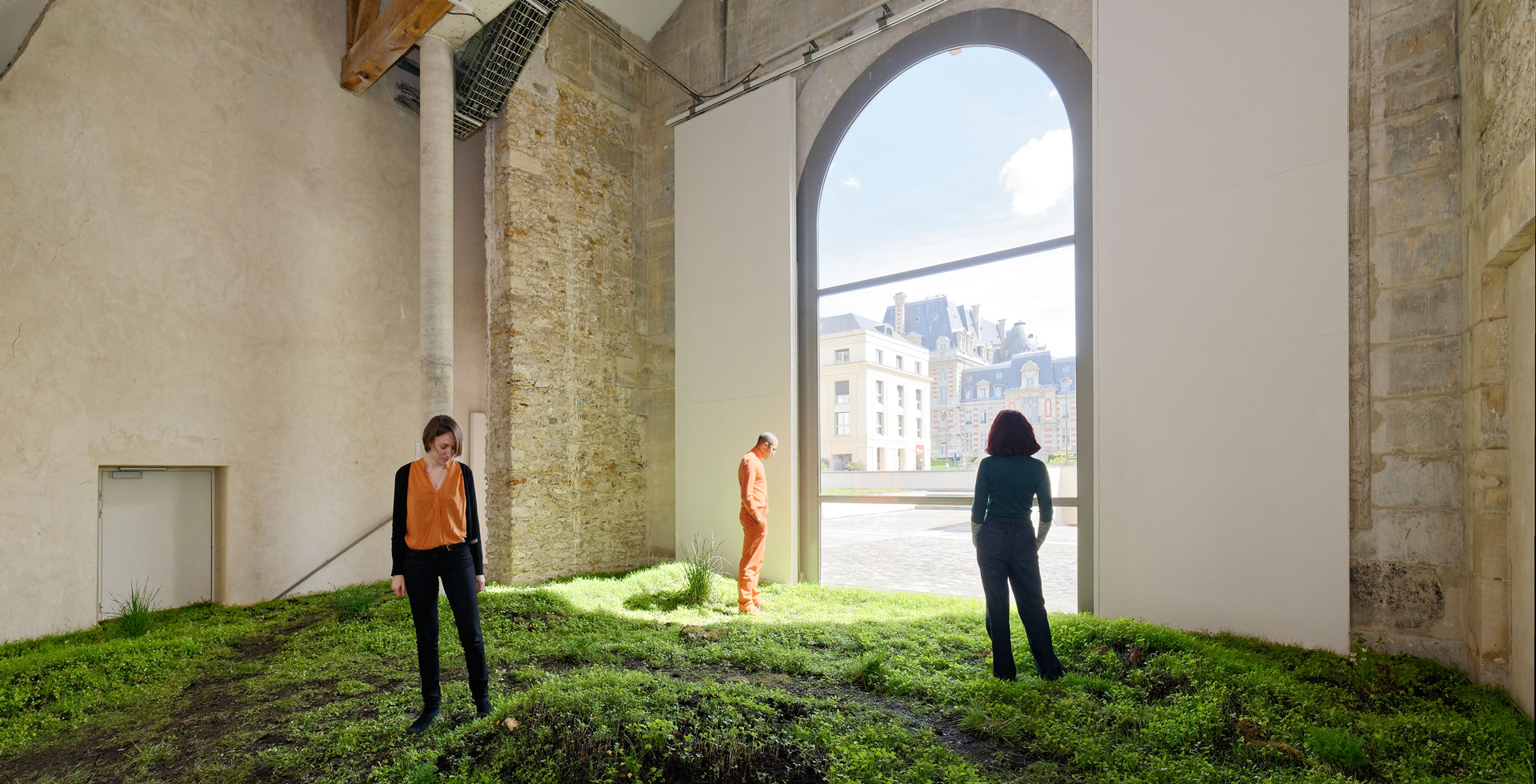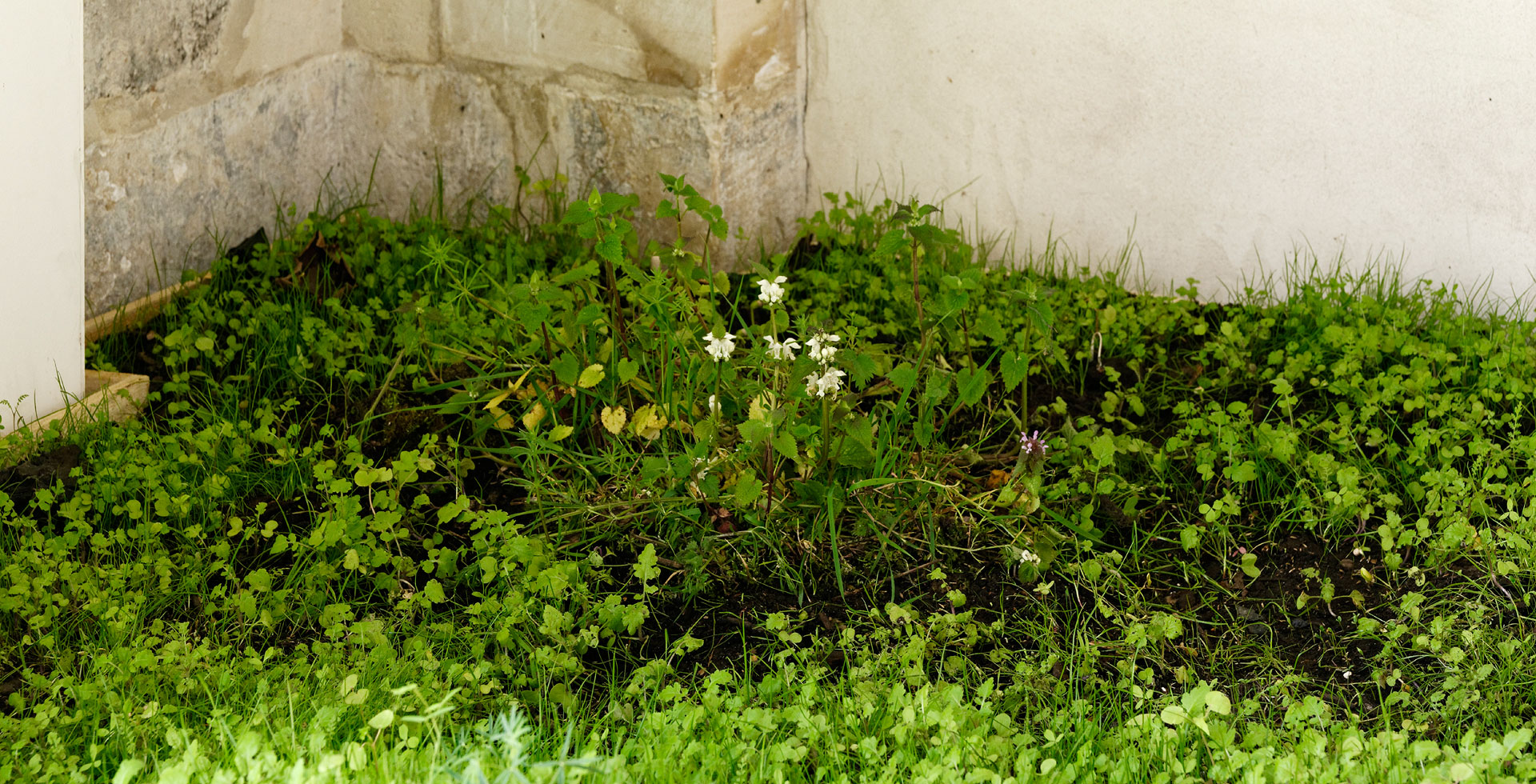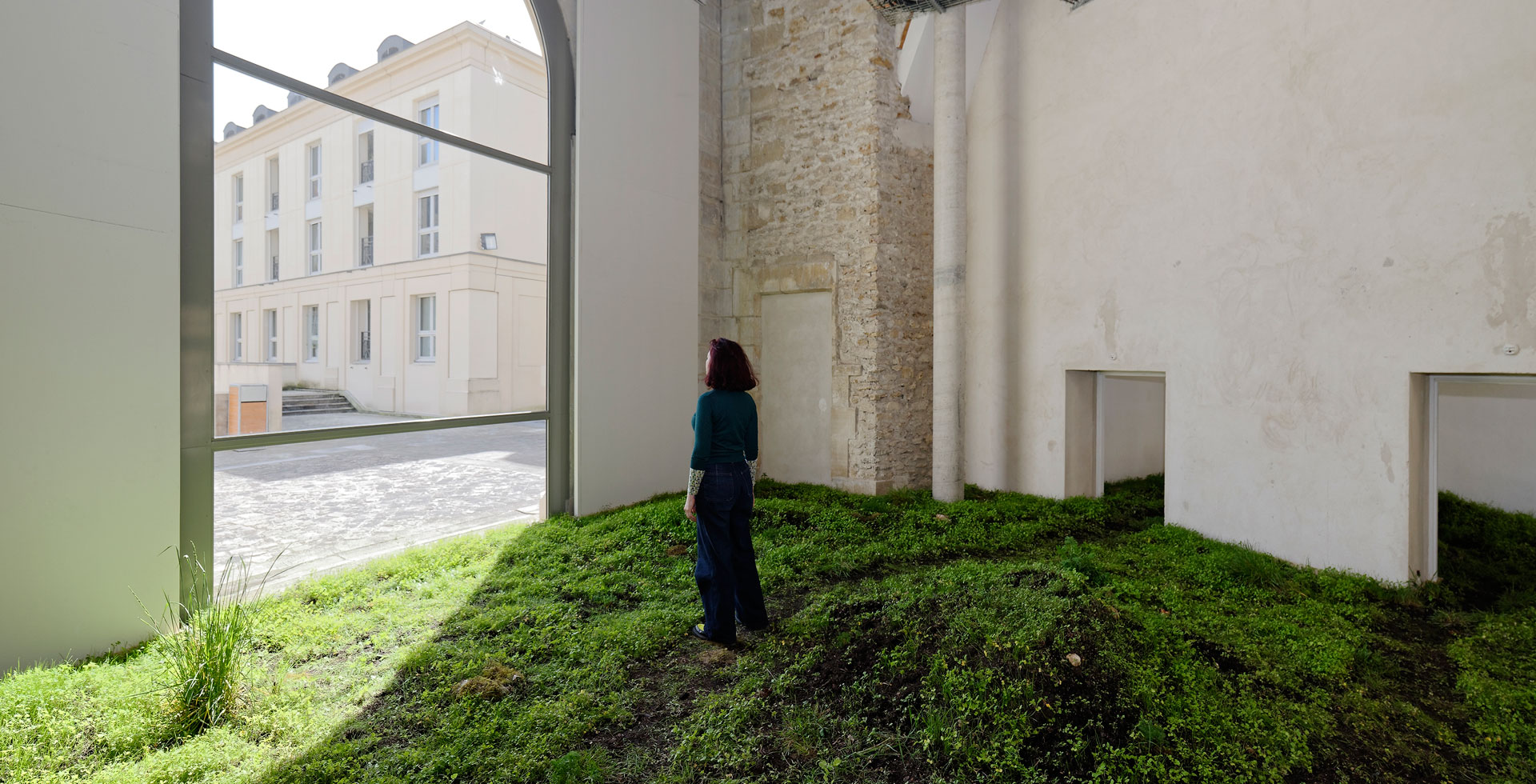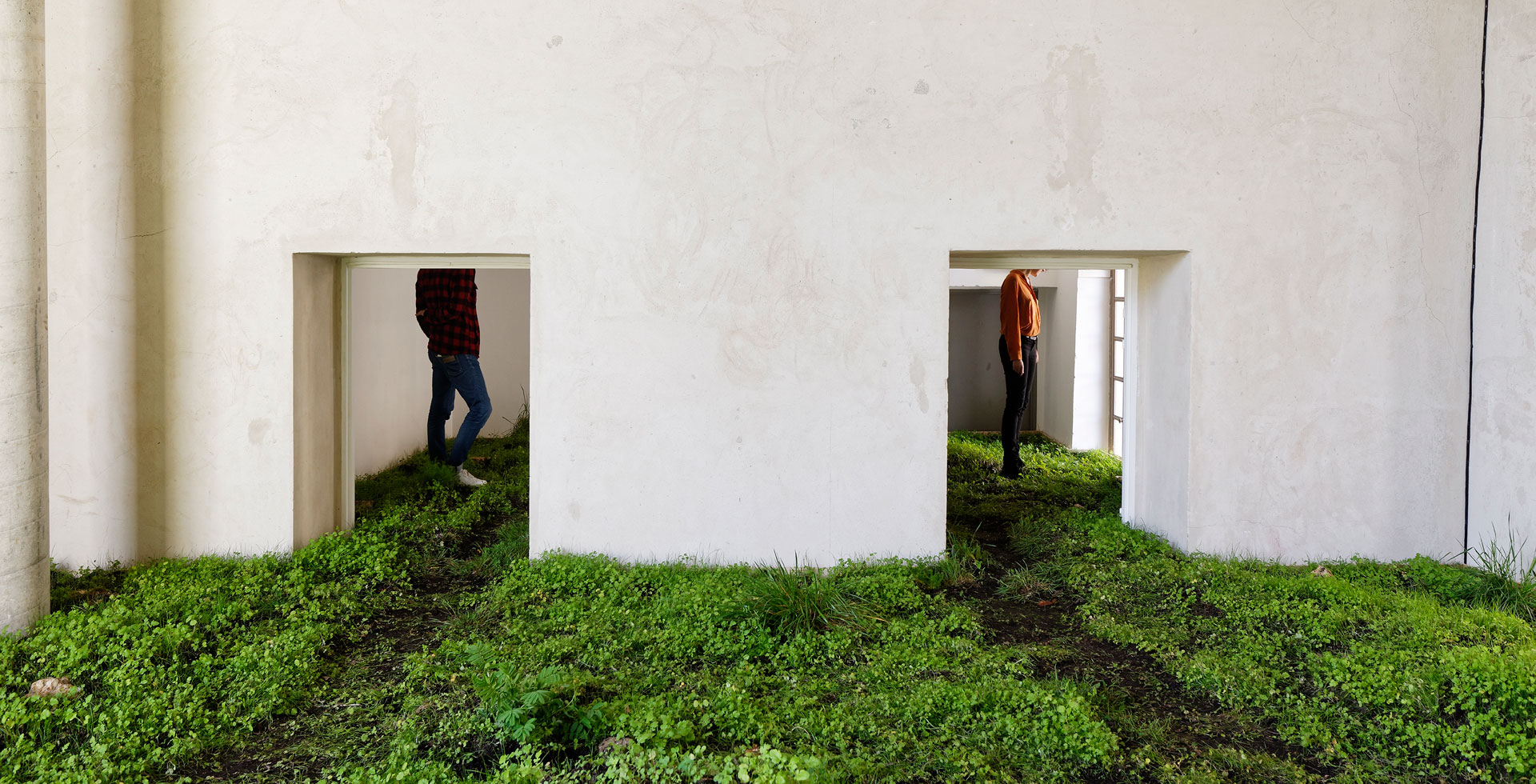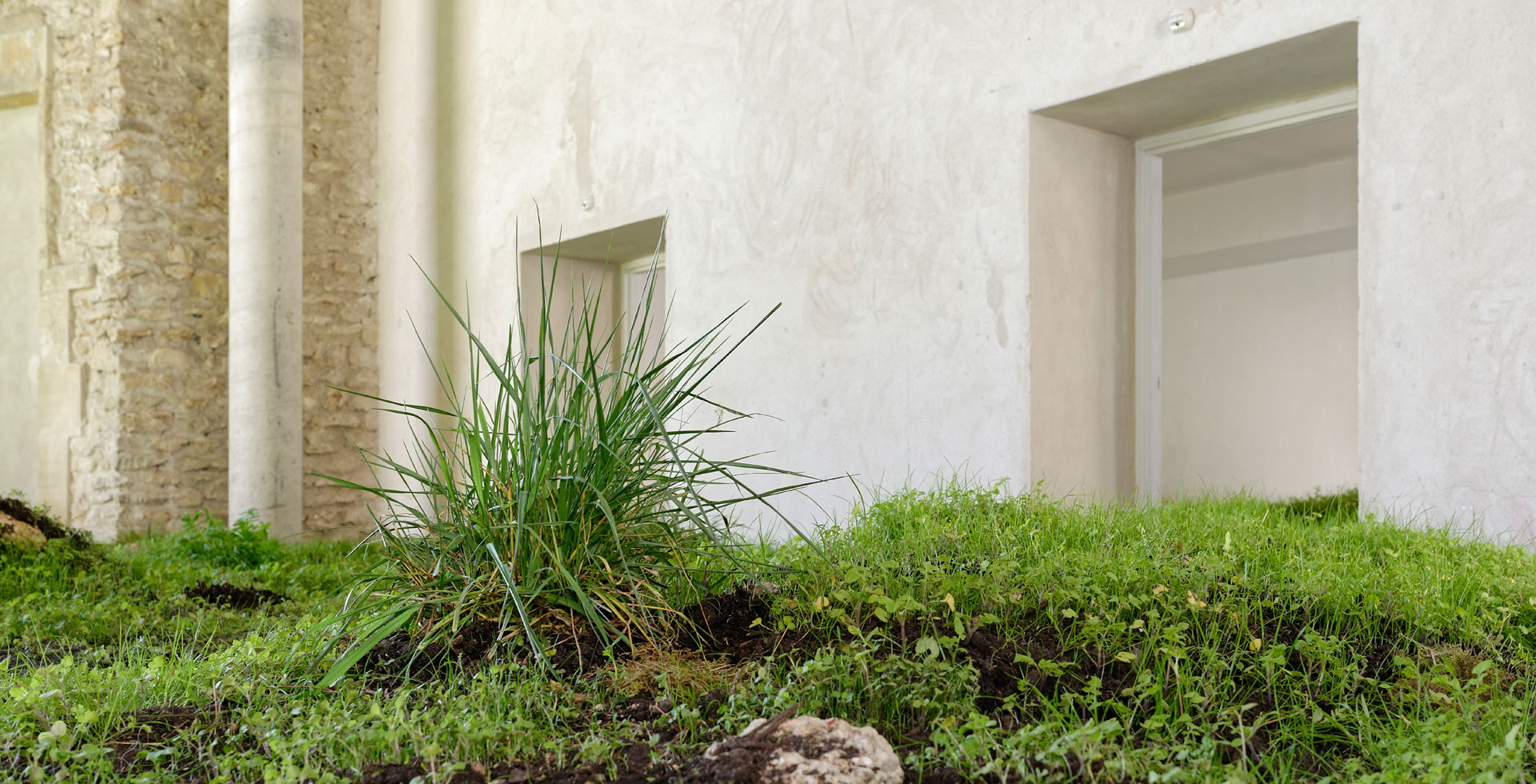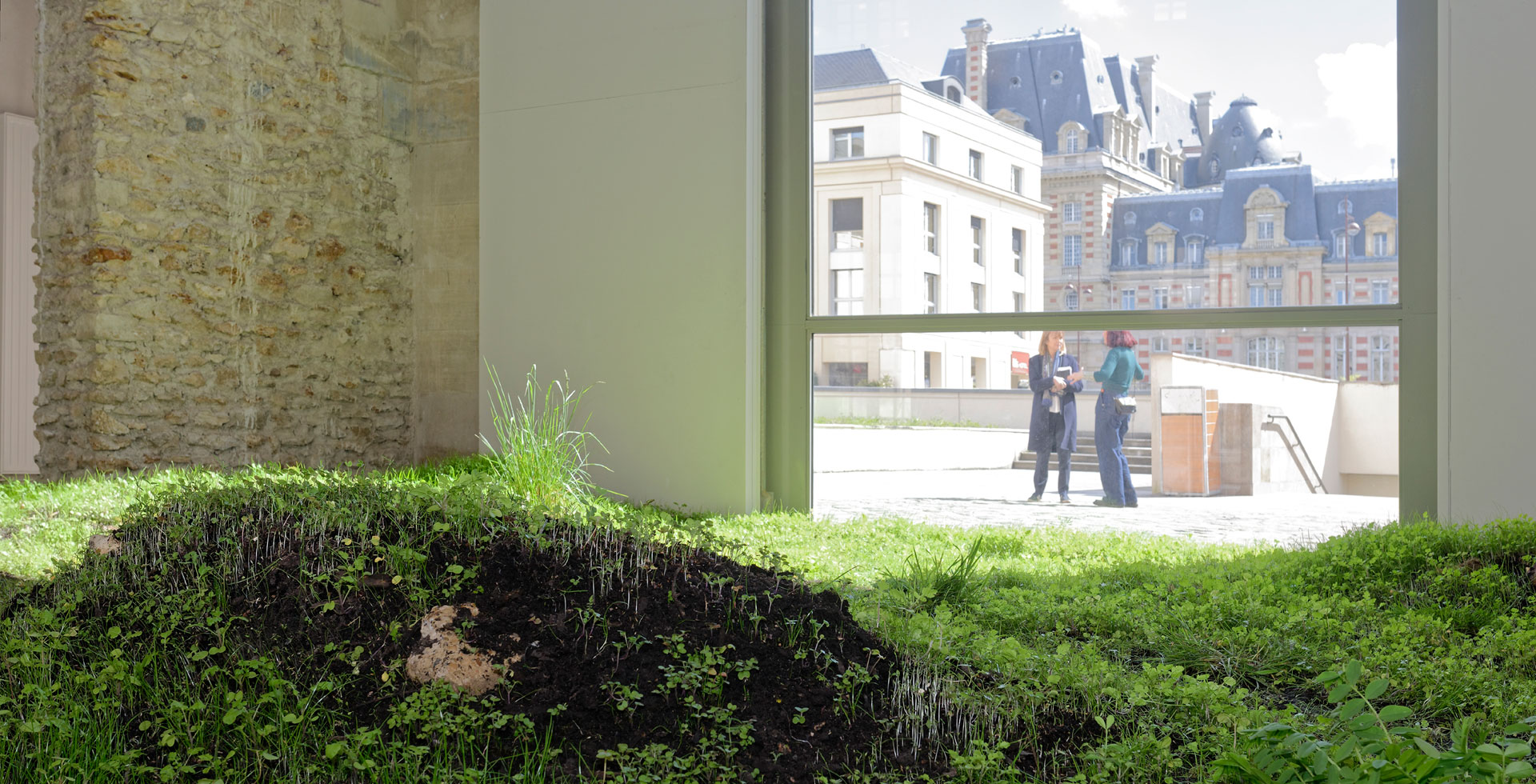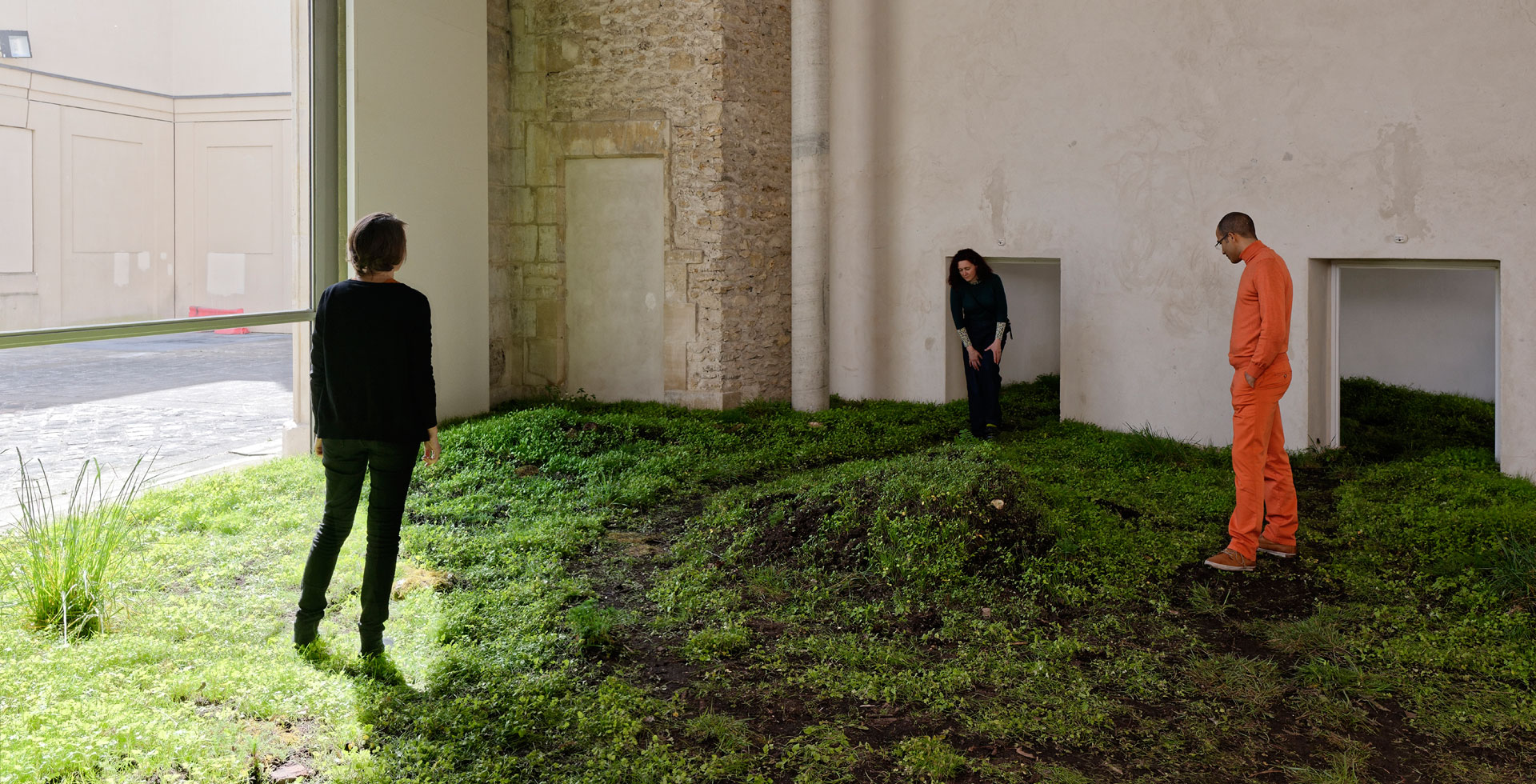lacune féconde
Land art flirting with archaeology and genetics
Exhibition space
La Maréchalerie
Date
April 14, July 3, 2016
Mediums
Earth & wild seed species
Images credit
© Aurélien Mole
Curator
Valérie Knochel-Abecassis
Technical Manager
Alan Purenne
Production Manager
Sophie Peltier
Communication
Bérangère Marizien
With the support of
LVMH
David-Alexandre Gadmer
Special thanks to
Géry Baron
Joël Cottin
Antoine Jacobsohn
Thierry Sasse
Jérôme Meynard
Thierry Petit
Christophe Delory
Manuel Palacio
Arnaud Moinet
Poli Gyaurova
Victoria Colin
Guishi Wang
Pauline Zamaron
Jasmine Khalafi
Land art and soundscape flirting with archaeology and genomics
At La Maréchalerie, Marc Johnson presents a landscape installation untitled “lacune féconde” (fecund lacuna), an architectural alteration that enhance the art center with recycled earth, carrying within it seeds of wild grasses and flowers (clover, mustard, pheasant’s eye, corn marigold, cornflower). Evolution takes place in the exhibition for a three-month period, modifying the audience hygrometric, acoustic and olfactive perception of the space. Based upon philosophical and sculptural understanding, the project highlights the way in which archeology and genetics questions the living through paleogenomics: The study of ancient DNA.
In contrast to this land art piece, the visitor is challenged by the soundscape (made with artificial voice): “NBIC report” from the document commissioned by the US National Science Foundation and Department of Commerce, in June 2002 untitled: “Converging technology for improving human performance: nanotechnologies, biotechnology, artificial intelligence and cognitive sciences”.
This site-specific installation emerges us into a dystopia and highlight the paradox of technological advances. By its physical as well as critical dimension, the exhibition offers, perhaps the distance and the awakening necessary to better understand: human dignity, ethics, biopower and biopolitics in the era of bioengineering and emerging technologies.
With the support of LVMH, EPMDNV: l’Établissement Public du Musée et du Domaine National de Versailles, le Potager du Roi – ENSP: l’École nationale supérieure de paysage, la Ville de Versailles.

